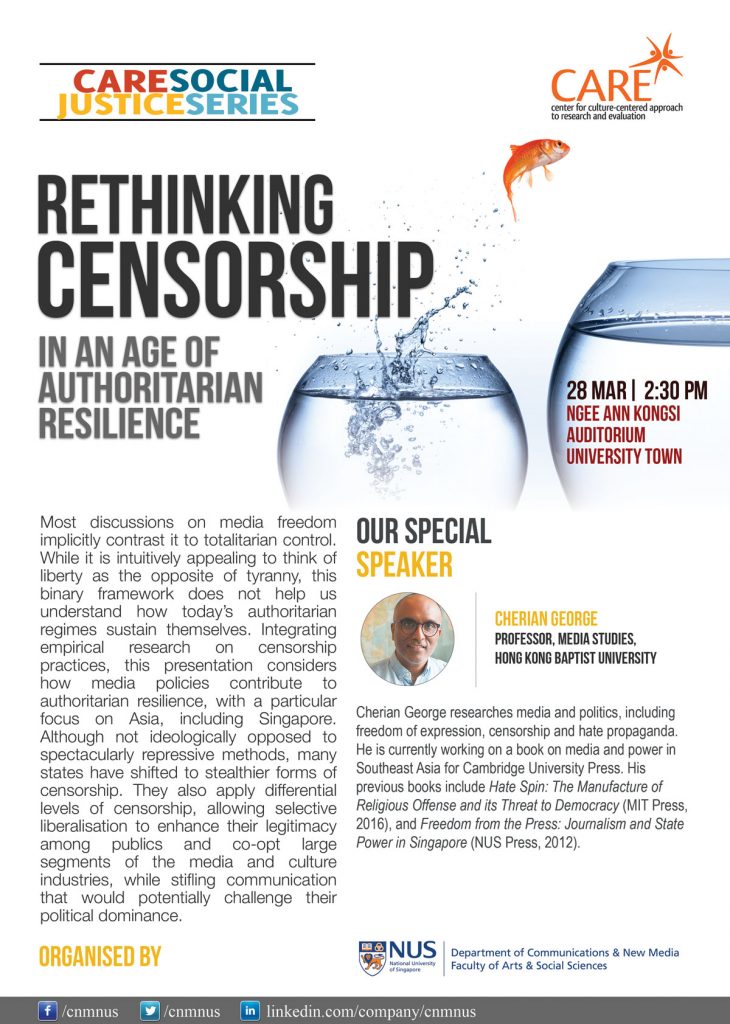Abstract:
Most discussions on media freedom implicitly contrast it to totalitarian control. While it is intuitively appealing to think of liberty as the opposite of tyranny, this binary framework does not help us understand how today’s authoritarian regimes sustain themselves. Integrating empirical research on censorship practices, this presentation considers how media policies contribute to authoritarian resilience, with a particular focus on Asia, including Singapore. Although not ideologically opposed to spectacularly repressive methods, many states have shifted to stealthier forms of censorship. They also apply differential levels of censorship, allowing selective liberalisation to enhance their legitimacy among publics and co-opt large segments of the media and culture industries, while stifling communication that would potentially challenge their political dominance.
Speaker:
Cherian George is professor of media studies at Hong Kong Baptist University. He researches media and politics, including freedom of expression, censorship and hate propaganda. He is currently working on a book on media and power in Southeast Asia for Cambridge University Press. His previous books include Hate Spin: The Manufacture of Religious Offense and its Threat to Democracy (MIT Press, 2016), and Freedom from the Press: Journalism and State Power in Singapore (NUS Press, 2012).
28 March 2018
2:30 PM – 3:30 PM
Faculty of Arts and Social Sciences
Block AS4, #01-19
VENUE CHANGED
University Town
National University of Singapore
Ngee Ann Kongsi Auditorium
Register at cnmn.us/censorship.

